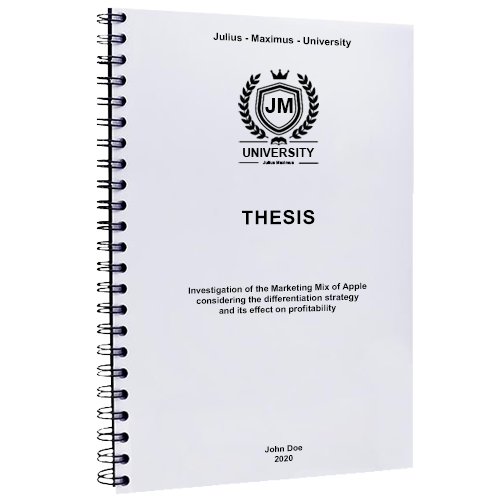Are you stuck deciding which subject and course to study at university? If so, you are not alone. Numerous high school students are unsure about which subjects to study at college and university due to the immense wealth of options presented to them. Furthermore, the subject that you choose and the degree you graduate in will greatly impact your career choices.

For instance, if you graduate with a BA in English Literature but want to become a nurse, your degree will not help you secure a job in nursing. Therefore, you need to think long and hard when deciding which subjects you want to study and the type of career you would like to have once you have graduated.
Not sure which subjects to study at university and which careers certain subjects lead you towards? The following guide is here to help you decide which subject is right for you.
Ask Yourself: Which Subject is Right for Me?
There is a plethora of subjects to choose from, making the process much more difficult. However, try your best not to get too overwhelmed or overthink the process. Ideally, you should have a list of subjects already in mind that you enjoy over other subjects, making the decision much easier. If that is not the case, you may want to take the time to list out all the subjects that you currently study for during high school.
When writing down your subjects, keep in mind which jobs and careers certain subjects may lead to as well as your career goals (if you have any). Once you have written down all your subjects, put them in order from ‘Most Enjoyable’ to ‘Least Enjoyable’. Ideally, you should consider studying for a degree in a subject that brings you joy over one that provides you with the least enjoyment.
With a list of subjects that you currently study, see what courses universities offer that are within the realms of those subjects you enjoy. You may find that you could combine your love for English and law and study for a degree in English and Law.
Think Ahead and Consider Life After Graduation
It can be easy to forget that there is life after graduation, and that once you have been handed your diploma, you are expected to find a job and start your career. Therefore, you need to consider the type of career you would like before you enrol into university.
Choose your career by taking into account what it is that you are passionate about. For instance, are you passionate about helping the public remain fit and healthy? If so, then you may want to consider a career in medicine. Once you have an idea of a career that you may enjoy, look into the requirements needed to earn a place at medical school and which school are best. You may also want to research the different career paths within medicine, the roles, and responsibilities for each role, as well as the average salary. For example, if you are wanting to become a Nurse Practitioner within Texas, you will want to look up the average Nurse Practitioner salary Texas, which is explained by the Texas Woman’s University.
It can be easy to consider university as a small section of your life, but the subjects that you study and the diploma that you graduate with can pigeonhole you into an industry or specific career. Therefore, you need to think long and hard about a career that interests you and the right qualifications needed to enter that industry.
Is There More Than One Course or Subject That Interests You?
What do you do if there are more than one course or subject that interests you? Firstly, you can look up and see whether you can do a joint degree. For instance, English Literature degrees can usually be paired with another degree, meaning you get the best of both worlds. However, if this is not the case, you may need to take the time to thoroughly research both courses and visit each university or college so that you can gain a greater understanding of what each course entails. You may find that once you visit a specific university and sit down for a talk with a department head, it all becomes clear, and you know that this is the subject and environment you want to study in. However, if this is not the case, remember that you can take a year out, providing you with more time to decide what it is that you wish to do at university.
There can be a lot of pressure put onto a teenager to know what it is that they want to do and head off to university as soon as they graduate. Taking a year between graduating from high school and starting university can be a wonderful experience, however. It can provide you with a lot of extra thinking time so that you are certain about what it is that you wish to study at university.
How do You Want to Study?
There was once a time when studying at university had to be done in person as you headed off to a university, lived there, and attended lectures and seminars. However, the rise of the internet and advancements in technology have meant that people can now studying completely remotely and earn a degree online. This has opened up the world of education to millions of people who may not have been able to afford traditional university fees or physically attend a university of their choice.
Online study is a great way for students to study overseas, have a better work-study balance (some students need to work in order to afford their tuition), and have more freedom. Traditional university does not work for everyone, so if you believe that you may enjoy online study more, look into the universities that offer this as well as traditional university.
The benefits of online study include:
- More cost-effective
- Offers variety
- More accessible
- Provides greater flexibility
Do Not Let Others Pressure You
Parents, family members, and friends all want what is best for you, but they may not realize that the pressure they put on you can be overwhelming and even off-putting. Although this does not mean you should not listen to their guidance or any advice that they present to you, it does mean that you should not allow their thoughts and reasonings to impact what it is that you truly desire. Everyone has their own dislikes and likes, so if you want to become a doctor but your father seems negative about this career choice, you should not let their negative opinions dictate what it is that you wish to study and do with your life.
Make sure you say ‘thank you’ to any advice they give you, but at the end of the day, it is your decision. Listen to your thoughts over the opinions of others. After all, it is you who will have to attend the classes, take the exams, and then make a career from the degree you have obtained.
Make a Shortlist
Make a shortlist of the subjects and courses you are considering as well as the universities that interest you. You can then start placing them in order of importance and interest so that you can keep tabs on which subjects and universities interest you the most. To make your shortlist much more informative, include pros and cons for each subject and university so that you can remember what it is that they can offer you and what they fall short on. Your list may adapt over time, so keep adding to it. Seeing how you rank the subjects and universities can help you make a decision much more easily and quickly.
Do You Have a University in Mind?
Some students have always envisioned attending a certain university. If this is the case for you, you may want to flip the usual decision-making process on its head. Usually, students will decide on a subject and then find a university that offers them the right curriculum for them or that is located close enough to their family. However, others may have dreamt of attending a certain university. If the latter refers to you, then you will want to comb through the subjects and courses that they offer and find a course that speaks to you. Check what it is that you need to achieve to attend and earn a spot at the university and apply. Even though you may be applying for your dream university, you should still apply to others. Here is a list of the best universities worldwide.
Trying to decide which subject and university are right for you can be incredibly overwhelming. Remember to choose a course that you will enjoy and that you are good at, and do not forget that whatever subject you choose to study, will impact the career you lead once you have graduated.


